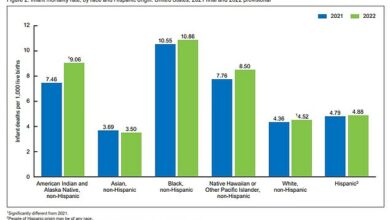Study reveals how much coffee people should drink per day to reduce the risk of three major diseases


Research shows that drinking three cups of coffee a day can reduce the risk of heart disease, diabetes and stroke.
In a study of more than 350,000 adults, Chinese researchers compared people who drank only one cup of coffee a day with people who drank three.
Using the patients’ medical records, the team found that people who drank about three cups of coffee a day had the lowest risk of cardiometabolic diseases, such as diabetes, heart disease and stroke.
While the team is largely unsure why coffee has such a protective effect, experts believe it may reduce harmful inflammation and help lower cholesterol, which can lead to metabolic disease in the long term.

Researchers in China found that people who drank three cups of coffee a day were 48 percent less likely to develop diseases like diabetes and stroke than people who drank just one cup of coffee.
However, there is a fine line when it comes to exaggeration.
Other research has shown that drinking four or more cups of coffee per day may increase the risk of heart disease due to high heart rate and blood pressure.
Dr Chaofu Ke, lead author of the study and associate professor of epidemiology at Suzhou Medical College of Soochow University in China, said: ‘The findings highlight that promoting moderate coffee or caffeine intake as a dietary habit for healthy people may have far-reaching benefits for the prevention of [cardiometabolic death].
In the new study, published Tuesday in The Journal of Clinical Endocrinology & Metabolism, researchers reviewed the medical records of 360,406 adults in the UK Biobank database.
Participants were between 37 and 73 years old and just under half had no history of cardiometabolic disease.
Using self-reported answers, data from general practitioners and hospitals, and death certificates, the team compared the risks of developing these conditions in people who either drank no caffeine or drank one cup of coffee per day (100 milligrams of caffeine) with those who drank three cups of coffee (200 to 300 milligrams per day).
The team found that people who drank three cups of coffee a day had a 48 percent lower risk of developing cardiometabolic disease. And those who had 200 to 300 milligrams of caffeine in other forms, such as tea, had a 40 percent lower risk.
Dr Ke said: ‘Consuming three cups of coffee, or 200-300 mg of caffeine, per day could help reduce the risk of developing cardiometabolic multimorbidity in individuals without cardiometabolic disease.’
Researchers do not yet know exactly why coffee can reduce the risk of diseases such as type 2 diabetes and stroke. However, previous research has pointed to the high concentrations of polyphenols in coffee, a form of antioxidant.
Antioxidants are molecules that attack free radicals, unstable compounds that increase oxidative stress throughout the body. If left untreated, oxidative stress can increase inflammation and blood pressure, which increases the risk of cardiometabolic disease.
Other recent research has supported the new study’s findings. For example, a Study 2022 of nearly 450,000 adults found that people who drank two to three cups of coffee a day had a lower risk of heart disease and premature death than people who didn’t drink the beverage at all.
Moderation is key, though. A study published last month, for example, found that drinking more than four cups of coffee a day increased the risk of heart disease.
The researchers noted that this is likely due to persistently high heart rate and blood pressure, which can damage blood vessels and weaken the heart.




